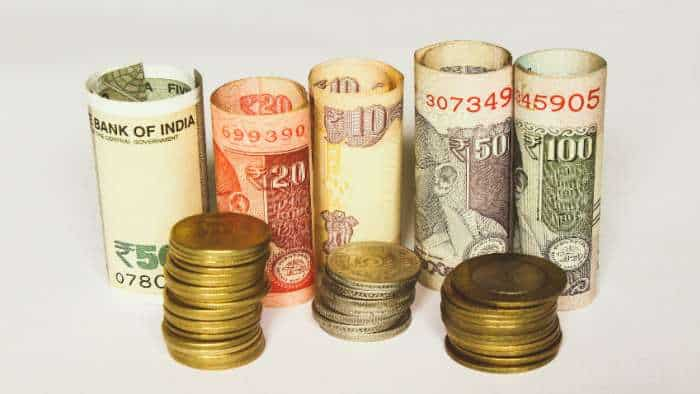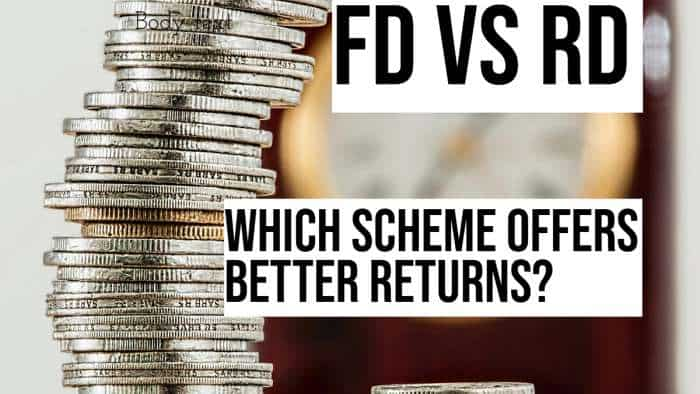How economists rate Finance Minister Nirmala Sitharaman's historic Budget 2024
Budget 2024: Finance Minister Nirmala Sitharaman wrote history on July 23 by unveiling her seventh straight Budget in Parliament. Here is what economists make of the Narendra Modi 3.0 government's first Union Budget since returning to power in June 2024.
)
Budget 2024: Finance Minister Nirmala Sitharaman made history on July 23 by unveiling her seventh consecutive Budget in Parliament. Her Budget for the current financial year emphasized infrastructure development and job creation while reaffirming the government's commitment to the critical farming sector and empowering the underprivileged. Additionally, it introduced changes to direct and indirect taxes, as well as fees borne by market participants.
The Budget pegged the country's fiscal deficit - or the shortfall between the government's revenue from its expenses - at 4.9 per cent of GDP for the current financial year, 20 basis points below 5.1 per cent pegged in the Interim Budget presented on February 1.
"In this Budget, we particularly focus on employment, skilling, MSMEs, and the middle class. I am happy to announce the Prime Minister’s package of 5 schemes and initiatives to facilitate employment, skilling and other opportunities for 4.1 crore youth over a five-year period with a central outlay of Rs 2 lakh crore," said the finance minister in her Budget speech.
Morgan Stanley economists wrote in a research report that the Budget focused on fiscal consolidation "while maintaining momentum on capex and creating a foundation for sustained medium-term growth path through schemes on skill enhancement and job creation".
The government's fiscal deficit target, which stood at a five-year low, was 20 basis points below the brokerage's expectations.
Here is what other economists make of the Narendra Modi 3.0 government's first Union Budget since returning to power in June 2024:
Radhika Rao, Executive Director and Senior Economist, DBS Bank:
“Faced by a trade-off between fiscal consolidation and expectations for measures to boost demand, the FY25 Budget struck a fine balance by continuing to consolidate finances while also tackling social sector demands, with a focus on saving over spending. The strong revenue handover from the prior year was evenly split between tightening the fiscal deficit target by a further 20bp...vs the interim budget and the rest towards the increase in revenue spending. The nominal GDP forecast was maintained with conservative tax buoyancy assumptions, leaving room for additional revenue cushion."
"The budget also focuses on structural improvements, including efforts to boost job creation and skills development, promoting exports through adjustments in import tariffs, and making direct tax changes such as reducing corporate tax for foreign firms and increasing capital gains tax as a cautious preventative measure. Overall, Budget measures were focused on incremental steps towards taking the economy towards the Viksit Bharat 2047 goalpost of reaching a ‘Developed India’ status."
Madhavi Arora, Lead Economist, Emkay Global Financial Services:
"As expected, the Centre has not let go of the consolidation journey ahead (as the debt management remains tricky), despite the challenges of the political economy... The policy direction/prerogatives may remain largely similar, focusing on a credible and clearly communicated consolidation, anchored on stronger revenue mobilization and spending efficiency."
"Increased degree of freedom amid RBI’s excess dividend bonanza of 0.4 per cent of GDP has been partly used to correct fiscal path faster, instead of allocating it to higher revenue expenditure or capex spend, even as the penetration mix of both revenue expenditure and capex schemes has been further streamlined."
Get Latest Business News, Stock Market Updates and Videos; Check your tax outgo through Income Tax Calculator and save money through our Personal Finance coverage. Check Business Breaking News Live on Zee Business Twitter and Facebook. Subscribe on YouTube.
RECOMMENDED STORIES

Top 7 Flexi Cap Mutual Funds With up to 52% SIP Return in 1 Year: Rs 20,000 monthly SIP investment in No. 1 fund has generated Rs 3.02 lakh; know about others too

Rs 55 lakh Home Loan vs Rs 55 lakh SIP investment: Which can be faster route to arrange money for Rs 61 lakh home? Know here
09:30 PM IST










 Narendra Modi 3.0 government to borrow 47% of FY25 target in October-March, stays on path laid out in Budget 2024
Narendra Modi 3.0 government to borrow 47% of FY25 target in October-March, stays on path laid out in Budget 2024 Budget 2024: Big relief, taxpayers! Centre may give option to calculate LTCG tax on property, pay lower tax under certain conditions
Budget 2024: Big relief, taxpayers! Centre may give option to calculate LTCG tax on property, pay lower tax under certain conditions PM Modi to address Industry leaders post-union budget on Tuesday
PM Modi to address Industry leaders post-union budget on Tuesday Why you may need to pay Rs 7.80 lakh extra in tax to sell the same property after indexation rule change; get calculations here
Why you may need to pay Rs 7.80 lakh extra in tax to sell the same property after indexation rule change; get calculations here Budget 2024: Steel sector innovation to get a boost from infrastructure allocation, support to startups, says industry body
Budget 2024: Steel sector innovation to get a boost from infrastructure allocation, support to startups, says industry body